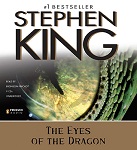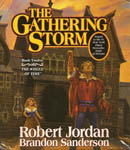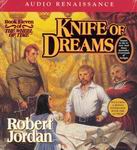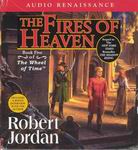
 The Night Watch
The Night Watch
By Sergei Lukyaenko; Read by Paul Michael
15 Hours – [UNABRIDGED]
Publisher: Brilliance Audio
Published: 2012
Themes: / Fantasy / Urban Fantasy / Magic / Good and Evil / Supernatural /
Sergei Lukyanenko is a science-fiction and fantasy author, writing in Russian, and is arguably the most popular contemporary Russian sci-fi writer. His works often feature intense action-packed plots, interwoven with the moral dilemma of keeping one’s humanity while being strong.
In The Night Watch, set in modern Moscow, the “Others” live among us, an ancient race of humans with supernatural powers who swear allegiance to either the Dark or the Light. A thousand-year treaty has maintained the balance of power, and the two sides coexist in an uneasy truce. But an ancient prophecy decrees that one supreme “Other” will rise up and tip the balance, plunging the world into a catastrophic war between the Dark and the Light. When a young boy with extraordinary powers emerges, fulfilling the first half of the prophecy, will the forces of the Light be able to keep the Dark from corrupting the boy and destroying the world?
The book is three novellas, linked by their setting and the fact that each is told by Anton, a Light Other who is now getting field experience after being a file clerk for several years. As he gets more experience, the reader learns more about the subtleties and intricacies of the world between Light and Dark. Each of the stories is thoroughly engrossing and although they build upon each other, the first two stand alone fairly well. The third conclusion brings the book’s overall story arc to a conclusion.
The first page of the book has two messages, which are puzzling and amusing as an introduction. However when I had finished the book I realized they also served to sum up how the author uses the different stories and characters:
This text has been approved for distribution as conducive to the cause of Light. — The Night Watch
This text has been approved for distribution as conducive to the cause of Dark. — The Day Watch
Final result: simply fantastic. The way the three stories all look at Light and Dark, treaties and compromises, and even what it means to be unyielding on one side or the other … not only provides a gripping adventure, but food for thought about our own lives.
Audio Notes: I was delighted to find the audio CD available for only $10 and promptly began “rereading.” Narrator Paul Michael has a low key style in reading this book. His dialogue reading features what sound like authentic Russian accents which enhance the book greatly since Anton’s thoughts are read in a regular American accent.
However, I soon noticed that whenever a character spoke there is very little emotion portrayed, no matter how stressful the moment. There are plenty of stressful, action-filled moments and to have them all conveyed in such a subdued fashion drained the color and excitement of the story for me. Eventually, the entire book seemed so colorless that I stopped listening and picked up the print copy to read the third novella.
My husband regularly has conference calls with Russians. Upon hearing my comments, he mentioned that he has noticed a monotonous quality whenever the Russians are speaking English. He attributes it to the difficulty in speaking a foreign language and conducting business simultaneously. Although I was interested to hear this, I neither know nor care whether this is a universal Russian trait. Story narration requires some level of acting to convey the text properly to the ear.
Whatever the reason, I cannot recommend the audio if you want to experience the full flavor of the book.
Posted by Julie D.




